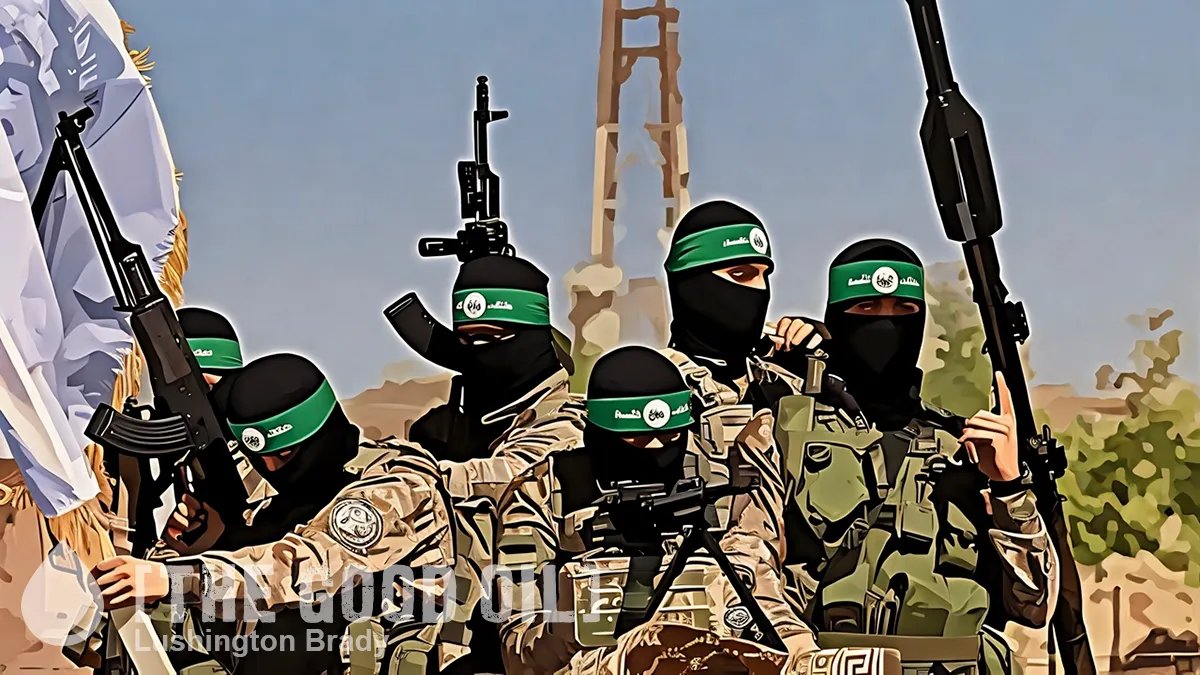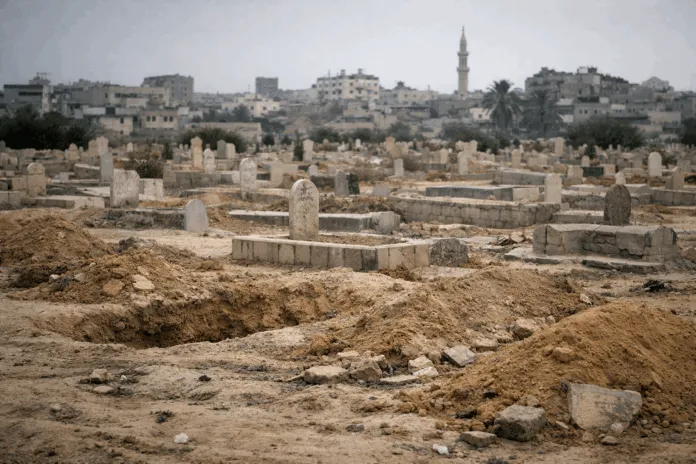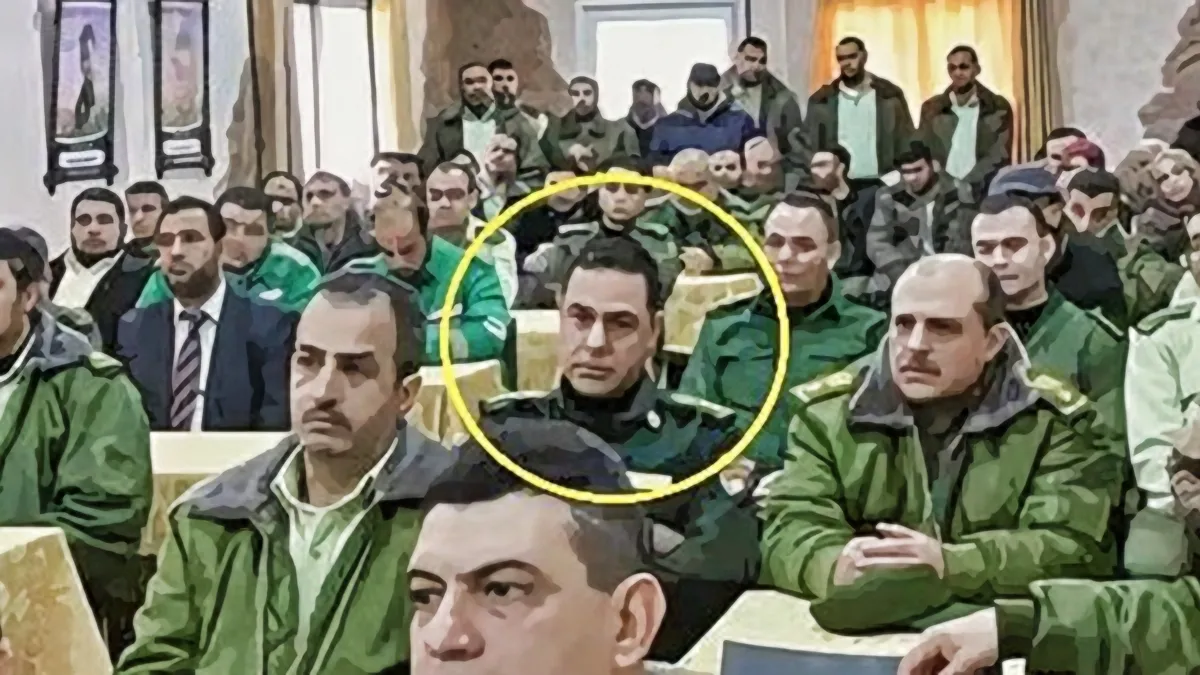Table of Contents
BICOM
BICOM provides accurate, timely and balanced information that is read by officials, experts, journalists and many others.
What’s happened: On Thursday night, Prime Minister Netanyahu presented the security cabinet with his proposal for ‘the day after Hamas’.
- The plan was presented as a draft platform for further discussion, and is based on different timelines:
- In the first stage, the IDF will continue fighting with the aim of destroying Hamas and Palestinian Islamic Jihad’s (PIJ) military capabilities and government infrastructure and prevent them from posing a threat in the future. In addition, Israel will continue to strive to bring the hostages home.
- In the second, medium-term phase, Israel will maintain freedom of operation in the Gaza Strip. Israel will work alongside Egypt and the US to ensure an end to weapons smuggling from Egypt into southern Gaza. Ensuring the Strip will be demilitarised. Israel will seek to empower a Gazan “civilian administration”, based “on local figures with administrative experience who have no affiliation with countries or organisations that support terrorism.”
- Relating to the long term, Netanyahu “utterly rejects international dictates in the matter of a permanent status arrangement with the Palestinians.” Any arrangement will only be reached in direct negotiations between the sides without preconditions. Accordingly, Israel will continue to oppose unilateral recognition of a Palestinian state.
Context: Although these are only general guidelines, it is the first time that the prime minister has presented a position of any kind on ‘the day after’.
- Notably, this document did not explicitly rule out the Palestinian Authority (PA) playing a part in future governance in Gaza.
- Although politically sensitive within the coalition, there is understanding that in order to get buy-in from potential regional partners (UAE and Saudi Arabia) to contribute to the rehabilitation of Gaza, some form of Palestinian leadership, perhaps a reconstituted PA and a long-term vision towards a negotiated political resolution will be necessary.
- The IDF is expected to launch a pilot programme in Gaza City’s Zeitoun neighbourhood, in which local civilians take over the administration of the area from Hamas. The trial civilian authority will look to take charge of distributing humanitarian aid, much of which currently ends up in the hands of Hamas, which uses it for its own ends to the cost of the civilian population.
- Another component of Netanyahu’s plan talks about the necessity to “de-radicalise all the religious, educational and welfare institutions in the Gaza Strip.” This would also include closing down UNRWA and replacing it with other international welfare agencies.
- In the meantime, fighting continues across Gaza. The IDF announced, over the last day:
- A terrorist cell that were carrying an explosive device and which fired an RPG at IDF troops, was eliminated by IDF and Israeli Air Forces (IAF).
- IDF soldiers located dozens of rockets and explosive devices.
- IDF troops continue operations in western Khan Yunis. In the past day, more than ten terrorists were killed by precise sniper fire and UAV strikes.
- The IAF destroyed a weapons storage facility, a command centre, and a compound where several terrorists were located, adjacent to IDF troops.
- Additionally, IDF troops continue to conduct targeted raids in Zeitounin the northern Gaza Strip, where over the past day the soldiers killed over ten terrorists using precise sniper fire, UAVs, and helicopters, and located weapons and military equipment. Troops also located weapons and uncovered tunnel shafts in the Zeitounarea.
- IDF troops eliminated several terrorists in the central Gaza Strip. During one incident, the soldiers identified a terrorist cell at an observation post in a strategic location, intending to attack IDF troops. A helicopter was then dispatched to strike the post and neutralise the terrorist cell.
- Meanwhile, Israel continues to fight on multiple fronts:
- There has been sustained rocket fire from Lebanon into northern Israel throughout Thursday, into the evening and again this morning. As usual the IDF returned fire to the sources.
- In addition, the IAF struck a Hezbollah military compound in the area of Maroun El Ras and a Hezbollah military compound in the area of Blida. Arab media reports suggest that a senior Hezbollah commander was killed in the attack, along with another combatant. Overall, Hezbollah has announced 208 fighters killed so far.
- The IDF confirmed that the interception of a long range ballistic missile from Yemen towards Eilat on Thursday morning was the seventh time the Arrow Aerial Defence System had successfully been deployed since the beginning of the war.
- In the West Bank, the IDF announced, “a terrorist who was on his way to commit a terror attack, and who carried out several shooting attacks over the past weeks was eliminated in an aerial strike in Jenin.” Yasser Hanoun, affiliated with PIJ was killed by a remotely operated UAV.
Looking ahead: A delegation led by the directors of the Mossad and Shin Bet will leave today for a summit in Paris for a renewal of the hostage negotiations. Among the key issues yet to be resolved is the ratio between the Palestinian prisoners to be released per hostage.
The West Bank in the Shadow of October 7
This BICOM research paper identifies dangerous trends in the West Bank, and maps Israel’s challenges in this arena in the post-October 7 context.
Download BICOM’s briefing here
PODCAST
Episode 227 | US Middle East Policy
In this episode, Jack Omer-Jackaman speaks to Jonathan Paris about the latest US thinking on Israel’s war in Gaza and its regional implications. They discuss the US position on a potential operation in Rafah, President Biden’s push for a two-state solution, and the likely impact of Middle East policy on the next US election. Paris is a London-based analyst, a former Middle East Fellow at the Council on Foreign Relations, and an advisor to the Chertoff Group in Washington.
Listen on Apple Podcasts, Spotify and Google Podcasts
NEW ARTICLE
Saudi normalisation now. A Palestinian state later
Top stories from the UK and Israeli media
The BBC reports on yesterday’s terror attack in Maale Adumim, in which an Israeli man was killed and several others wounded. The attackers fired automatic weapons at vehicles waiting at a checkpoint on a highway outside Maale Adumim.
The BBC also reports that when Israeli special forces rescued two of the hostages kidnapped by Hamas, there was relief for their families and a boost for national morale. But the rescue on 12 February has left angry feelings in Gaza, where more than 70 people were reported killed on the night.
Reuters reports that foreign ministers at the G20 group of nations meeting in Brazil were nearly unanimous in their support for a two-state solution as the only path to peace in the Israeli-Palestinian conflict, the Brazilian minister hosting the event said on Thursday. “There was virtual unanimity in the two-state solution as the only solution to the conflict,” Brazil’s foreign minister, Mauro Vieira, said at the close of the two-day meeting.
Andrew England in The Financial Times reports that a senior US official is in the Middle East pushing for a deal to halt the war in Gaza and secure the release of Israeli hostages held by Hamas. “This time it is White House adviser Brett McGurk, who arrives in Israel on Thursday… Last week, it was CIA director Bill Burns. McGurk’s trip signals the Biden administration’s desperation to get a deal over the line.”
The Telegraph reports that Israel is looking for Palestinians to run “humanitarian pockets” in Gaza where Hamas is no longer present, as part of a test run for the territory’s post-war future. “We’re looking for the right people to step up to the plate. But it is clear that this will take time, as no one will come forward if they think Hamas will put a bullet in their head”.
The BBC reports that The Association of Rape Crisis Centers in Israel says it has gathered evidence Hamas gunmen “systematically and intentionally” committed sexual crimes during the 7 October attacks. A report by the umbrella organisation describes “identical patterns” of sexual violence at multiple locations. These allegedly included violent rapes of women conducted “collectively” or “in front of an audience”.
The Guardian reports that UN experts say they have seen “credible allegations” that Palestinian women and girls have been subjected to sexual assaults, including rape, while in Israeli detention, and are calling for a full investigation.
The Guardian further reports that the UK government will consider suspending arms export licences to Israel if Benjamin Netanyahu goes ahead with a potentially devastating ground offensive on the Palestinian city of Rafah in southern Gaza.
The Guardian also reports that the organisers of the Eurovision song contest have said they are “scrutinising” the lyrics of Israel’s entry after it was claimed it makes reference to the Hamas attacks on 7 October. The lyrics from Israel’s entry, October Rain, sung by Eden Golan, were leaked to the media. According to Israel Hayom, lines in the song include, “There’s no air left to breathe”, and “They were all good children, each one of them”. The song also refers to “flowers”, which the newspaper reported is a military code for war fatalities.
The BBC, The Guardian, The Telegraph and Sky News all report that staff at a private company working with the Home Office have been suspended after a birth certificate was returned with the word “Israel” scribbled out. The baby’s birth certificate was sent off as part of a passport application.
Richard Kemp writes for The Telegraph arguing that western leaders have started to forget why the war in Gaza began.
The Telegraph and The Times both report that MPs have raised complaints that “from the river to the sea” was projected onto Parliament while police “stood by and watched”.
The Times publishes a leading article on Wednesday’s scenes in the UK Parliament, saying that “point-scoring during a debate showed MPs at their cynical worst. But more worrying still was an apparent willingness by politicians to surrender to extremists”.
The Economist publishes on the growing issue of ultra-orthodox communities in Israel not serving in the IDF.
The Economist also reports on the damage suffered by Gaza’s health system and the wider impact it will have on the health of the local population.
All the Israeli media features further information on yesterday’s terror attack in Maale Adumim. There was one fatality, later confirmed as 26-year-old Matan Elmaliach. Ten others were injured, including a pregnant woman in her early 20s. Haaretz quotes a senior security official saying: “Based on the amount of weapons seized from the terrorists, this incident could have ended in a much larger number of casualties.” Police also estimate the attack was planned for some time. “Commenting on the attack, the heads of councils of the West Bank settlements said that traffic congestion at the checkpoints in general, and at the Al-Zaim checkpoint in particular, are a security risk and called for a solution, emphasising West Bank roads where both Israeli and Palestinian vehicles travel.”
Kan Radio features Finance Minister Smtorich’s announcement of construction of more than 2,000 housing units in Maale Adumim and hundreds of housing units in the settlements of Kedar and Efrat in the Etzion bloc. Smotrich said the plan was a ‘fitting Zionist response’ to the Maale Adumim attack. Haaretz says the number is more likely over 3,000: 2,350 units in Maale Adumim, 300 in Keidar and 694 in Efrat. Haaretz also speculates that “should Israel go through with the settlement announcement, it will likely trigger significant outrage from US officials both in public and behind the scenes, as Washington has attempted to maintain regional calm in the weeks before Ramadan. The announcement is further likely to harm US efforts to push toward Israel-Saudi normalisation…”
Israel Hayom’s Ariel Kahana also focusses on issues related to settlers, specifically the US and UK’s recent sanctioning of individuals they accuse of inciting or conducting violence against Palestinians. “… It turns out,” he says, “that only one of the four is known to the law enforcement authorities in Israel as having problematic conduct… of the three Israelis punished by Britain, not a single one is known to the authorities.”
Kan Radio reports US Secretary of Defence Austin speaking last night with Defence Minister Gallant. They discussed the IDF’s operations in Khan Yunis and the need to present a credible plan to protect the civilians before an Israeli offensive in Rafah. A Pentagon statement confirmed Austin also broached the need to coordination with the humanitarian aid agencies.
Yediot Ahronot’s Sima Kadmon focusses on Wednesday’s declaratory resolution in the Knesset rejecting any attempts at unilateral recognition of a Palestinian state. “From the wording of the resolution and Netanyahu’s speech in English, too,” she writes, “it was possible to discern that the possibility of a Palestinian state is not at all off the agenda. Netanyahu is simply trying to tell the world not to do it unilaterally. Let us and the Palestinians do it together. There’s just one problem: Netanyahu has been selling this idea to the world for 20 years, and there is no one, including Netanyahu himself, who believes he and the Palestinians can agree on anything.”
Maariv says it has obtained a “secret document” showing that at least eight UNRWA workers were arrested by IDF troops in battles in the Gaza Strip. UNRWA directors have asked Israeli officials for information on the suspects’ captivity and for evidence of their involvement in terrorism, to which Israel has not yet responded. “Earlier this week, the security establishment gave the security cabinet and other government officials an updated report indicating that of the 12,000 UNRWA workers in Gaza, about 440 were active in Hamas’ military wing, in other words, they were terrorists who fought Israel. About another 2,000 are registered Hamas operatives, but not members of the military wing. Another approximately 7,000 UNRWA workers have a first-degree relative who is a Hamas terrorist. All in all, of the approximately 12,000 workers, close to 9,500 are connected to Hamas.”
In Haaretz, former Prime Minister Ehud Olmert pens a fierce article attacking Ministers Ben Gvir and Smotrich. “The ultimate aim of this gang,” he says is “‘purging’ the West Bank of its Palestinian inhabitants, cleansing the Temple Mount of its Muslim worshippers and annexing the territories to the state of Israel. The way to achieve this goal is blood-soaked. Israeli blood, in the state and in the territories it has been controlling for 57 years now, as well as Jewish blood in places elsewhere in the world. As well as a lot of Palestinian blood, of course, in the territories, in Jerusalem and if there is no alternative – also among Arab citizens of Israel.” Olmert also touches on the war in Gaza, saying that “continuing the military action now will drag Israel into Rafah… Such a move will palpably and immediately endanger the peace agreement between Israel and Egypt. There is no doubt that Egypt, Jordan, the United Arab Emirates and also the Palestinian Authority and Saudi Arabia are all hoping for Hamas to crash and collapse. However, Egypt knows there is a considerable chance that continuation of Israeli military activity will stir the Muslim Brotherhood out of its dormancy.” Finally, Olmert condemns likely restrictions on Muslim attendance on the Temple Mount during Ramadan. This decision is “deserving of special condemnation in light of the recent manifestations by Israeli Arab citizens of responsibility and solidarity with the distress their country is experiencing,” he writes. “Instead of respecting the Arab community’s solidarity, Netanyahu and Ben-Gvir are antagonising it and inciting against it.”
Israel Hayom’s Ariel Kahana worries that “there is only one person representing Israel in the most important capital in the world [Washington DC] at the moment, and that is Minister Ron Dermer… That’s how it happened that in many significant processes, Israel’s voice is not heard. For example, several weeks ago the Americans held a summit with representatives from the Arab countries, where the sides drew up the principles for the day after in Gaza. Israel wasn’t there. It can’t work this way. The message that Israel is not on the stage is coming from many directions in the American capital. Dermer may be wise and capable, but he isn’t a replacement for the State of Israel’s institutions.”
Recommended Reading
War cabinet split could get worse if Temple Mount flares up again, Richard Pater, The Jewish Chronicle
- “We are now in the month of Adar, traditionally a time for joy and merriment in the lead-up to Purim festivities. But here in Jerusalem I am yet to see any sense of celebrations. The mood matches the seasonal weather — bleak, with large grey clouds of grief engulfing the whole of the country.” Read more
Israel should handle Ramadan with care, Mirit Sharabi, Israel Hayom
- “Along with the need to allow freedom of worship, the police are required to ensure, as part of the preparations for this religious holiday, that all citizens of Israel will feel safe throughout.” Read more
To Establish a Palestinian State Now, After October 7, Would Be a Strategic and Moral Failure | Opinion, Eran Hermoni, Newsweek
- “I still believe that in the long run, the vision that will ensure the existence of Israel as a Jewish and democratic state, requires the Palestinians in Judea, Samaria, and Gaza to be citizens of demilitarized Palestinian state living under its sovereignty. But I can’t accept it when I hear people calling for Israel to act now in order to establish a Palestinian state.” Read more









